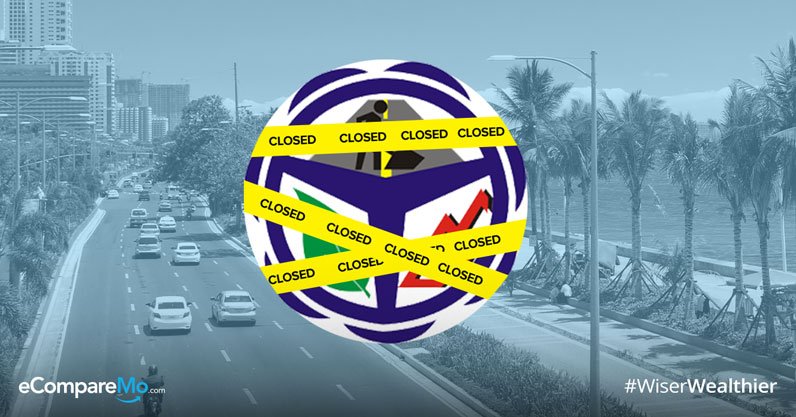With The Road Board Abolished, Congress Now Gets To Decide Where To Use MVUC Funds
6 min readIn a unanimous vote of 180-0-0, the House of Representatives gave the abolition of the Road Board a green light on January 21.
House Bill 7436, which was previously

Before the lower chamber deliberated on
The speedy passage of the bill
“This is, again, a tax measure. We also want to make sure, since pagkukunan ng pondo ito, na iyong pagkolekta ng MVUC matutuloy pa rin. Kasi kung papatayin mo lang ‘yong bill, wala ka nang kokolektahin,†said Andaya in a report by Rappler.
Understanding the Road Board
First things first: what on earth is the Road Board?
Back in 2000, with Republic Act No. 8794, the government decided to impose the MVUC on motorists.
According to the law, the collection of the MVUC exists to fund road construction and rehabilitation for users. Think of this as the convenience charge paid by motorists for using roads. As with constant use of the roads, they are subject to depreciation and must be repaired constantly.
But who decides which roads should be rehabilitated? This is where the Road Board comes in.
Under the Republic Act No. 8794, the Road Board will be a collective of agencies from different related agencies as well as representatives from private transport groups, namely:
- Department of Public Works and Highways (also serving as the chairman of the board)
- Department of Transportation
- Department of Budget and Management
- Department of Finance
- Three representatives of private transport organizations
This collegial body’s responsibility will be the proper allocation and management of the funds collected from the MVUC; from the approval of road projects to be greenlit for a fiscal year to the proper allocation of the budget, the Road Board will oversee these.
Although the Road Board’s objective is
To ensure that every peso is wisely spent, the Road Board must allocate their fund into four special accounts:
- Special road support fund
- Special local road fund
- Special road safety fund
- Special vehicle pollution control fund
(Read: Car Registration Fees To Increase Next Year? Here’s What We Know So Far)
All vehicles that will be registered with the Land Transportation Office are subject to MVUC, including more informal
For private and government vehicles:
|
Category |
Gross vehicle weight (GVW) |
Rate |
|
PASSENGER CARS |
||
|
Light |
Up to 1,600 kg |
P1,600 |
|
Medium |
1,601 to 2,300 kg |
P3,600 |
|
Heavy |
2,301 kg and above |
P8,000 |
|
UTILITY VEHICLES |
Up to 2,700 kg |
P2,000 |
|
2,700 to 4,500 kg |
P2,000 plus 0.40 x GVW in excess of 2,700 kg |
|
|
SPORTS UTILITY VEHICLES |
Up to 2,700 kg |
P2,300 |
|
2,701 to 4,500 kg |
P2,300 plus 0.46 x GVW in excess of 2,700 kg |
|
|
MOTORCYCLES |
Without sidecar |
P240 |
|
With |
P300 |
|
|
TRUCKS AND TRUCK BUSES |
4,501 kg and above |
P1,800 plus 0.24 x GVW in excess of 4,501 kg |
|
TRAILERS |
4,501 kg and above |
0.24 X GVW |
For public vehicles:
|
Category |
Gross vehicle weight (GVW) |
Rate |
|
PASSENGER CARS |
||
|
Light |
Up to 1,600 kg |
P900 |
|
Medium |
1,601 to 2,300 kg |
P1,800 |
|
Heavy |
2,301 kg and above |
P5,000 |
|
UTILITY VEHICLES |
Up to 2,700 kg |
0.30 x GVW |
|
SPORTS UTILITY VEHICLES |
Up to 2,700 kg |
P2,300 |
|
2,701 to 4,500 kg |
P2,300 plus 0.46 x GVW in excess of 2,700 kg |
|
|
MOTORCYCLES AND TRICYCLES |
P300 |
|
|
TRUCK BUSES |
4,501 kg and above |
0.30 x GVW |
|
TRAILERS |
4,501 kg and above |
0.24 X GVW |
To understand the computation, here’s an example: the Subaru WRX has a curb weight (the mass of the car without any passenger or cargo) 1,510 kg, making it eligible under the light category with a rate of P1,600.
If it has passengers and cargo, the sports sedan’s weight can go a little around 2,000 kg, therefore making it classifiable under the
Board
Although the inter-agency board has
In a report by GMA News Online, House Minority Leader Danilo Suarez said that the Road Board has become a source of corruption by blackmailing the board with abolition if they don’t approve projects of “some former leaders.â€
If the Road Board dismantling will
(Read: Road Safety Education Bill, Motorcycle Taxis: Two Ways Philippine Roads Could Improve In 2019)
However, the absence of
This is what the Center for Media
“The Road Board holds a critical
The Road Board may be a flawed agency. However, it seems like the step the government wants to undertake presents a clear resolution as to how it
